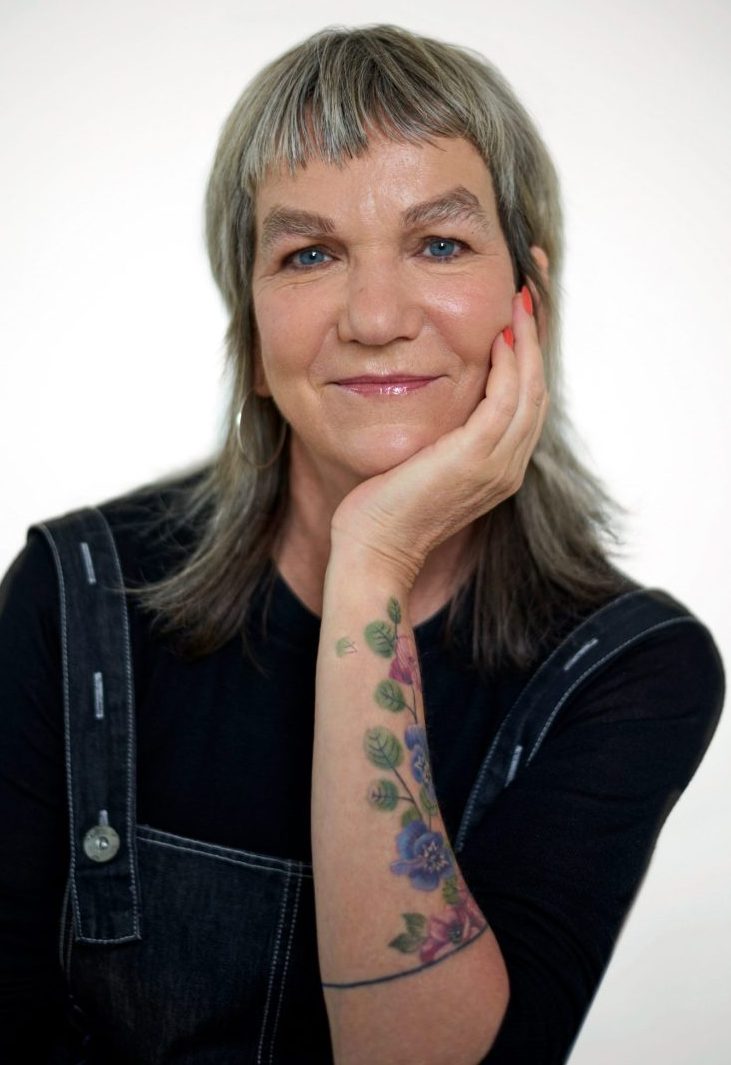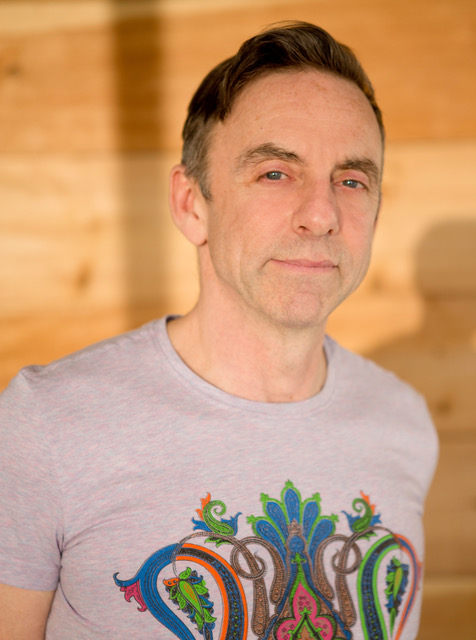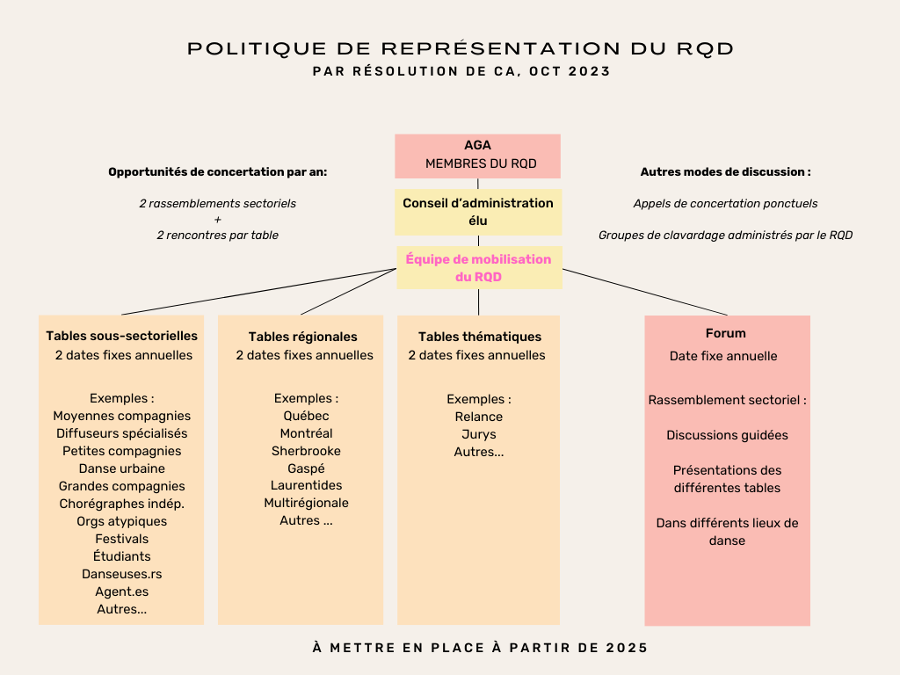Don’t delay! You still have a few days to submit your project for the 28th Vue sur la Relève festival. Go to https://www.vuesurlareleve.com/appel-aux-artistes-28e-edition-en-cours Deadline for submissions: November 11.
Parts of this site have been translated into English. If you have any questions, please contact info@quebecdanse.org
Thank you for your understanding.
Festival – Vue sur la Relève; 28th edition, May 2024
The dance sector REFUSes to work more for less
Montreal, October 31, 2023 – On October 26, the dance sector mobilized in large numbers for the annual general meeting of the Regroupement québécois de la danse (RQD). Presenting the demands made during the year, the economic survey of professional dance and structuring projects for the recovery, as well as electing members to the Board of Directors, the day ended with a workshop on future actions. Members of the dance sector worked together and presented possible next strategies to ensure that the dance sector is heard and adequately funded.
The main message of the ideas presented by the members is the REFUSal to work more for less. Governments and funders are saying it: the 2024 budget won’t meet our needs, so we’re being asked to self-organize. But the dance sector is already working in precarious conditions, with invisible labor and underpaid professionals. So the sector REFUSes. We refuse to continue producing more with less funding. We refuse to continue asking our employees to do the work of two or three. We refuse to cut wages. We refuse to pay fewer or lower fees. We refuse to create big with small budgets. If funding for dance doesn’t increase in line with its needs, we’ll have to expect a decline.
Another resounding message was that dance should be recognized as a socio-economic vector, and that its professionals should be able to make a living from their profession, at their fair value. The sector is demanding that we stop “$ou$-estimating” it. Failing to invest in dance means encouraging poverty, and the members of the professional sector are going to repeat this loud and clear.
Sophie Corriveau and Sylvain Émard as RQD presidents
After a healthy electoral competition between candidates for six positions – a sign of the commitment and vitality of professionals within the association – a co-presidency was proposed and elected. The new co-presidents are Sophie Corriveau and Sylvain Émard.
Sophie Corriveau
Sophie Corriveau has been Artistic and General Director of Danse-Cité for the past four years. Originally from Quebec City, where she took her first ballet classes, she has danced with a variety of companies and choreographers, created three choreographic works, initiated several artistic projects and taught extensively, with great pleasure. She has also accompanied a number of artists as artistic advisor or rehearsal director.
Sylvain Émard
Sylvain Émard founded his company in 1990. From his first solo, Ozone, Ozone (1987), to Rhapsodie (2022), the choreographer explores the territory of human nature through the power of the body. Sylvain Émard excels in the art of moving crowds. For over 10 years, the irresistible wave of Le Grand Continental has taken him to the four corners of the globe, where he has directed hundreds of amateur dancers.
A Board representative of the dance ecosystem
To carry out its new mandate, the co-presidency will be able to count on a Board of Directors (BOD) representative of the sector’s regional, cultural, artistic and organizational diversity.
Elected for the College of Professional Individual Members are Jean-François Duke (Performer), Amandine Garrido (Performer and Choreographer) and Sasha Kleinplatz (Choreographer); and for the College of Professional Corporate Members are Sophie Corriveau (Artistic and General Director of Danse-Cité), Pierre Des Marais (Artistic and General Director of Danse Danse) and Sylvain Émard (Co-Artistic and General Director of Sylvain Émard Danse).
The dance sector is ready to continue mobilizing all the necessary players to ensure that it is adequately financed in an increasingly difficult economic context. Through concerted collective action and official representations, the dance sector will continue to raise awareness among the public and authorities alike, and to demand that it be funded at its fair value.
State of the dance sector in Quebec
The Regroupement québécois de la danse unveils its 2023 economic study
Dance in Quebec : funding inadequate for a still-growing sector
Montreal, October 18, 2023 – While the cultural season is back in full swing, activity in Quebec’s performing arts has yet to return to pre-pandemic levels. Despite the enthusiasm surrounding the return of cultural events and performances, the choreographic arts industry too continues to face significant challenges. While there are signs of recovery and optimism within the industry, serious risks remain. These are the findings of an economic study of Quebec’s dance sector, conducted by AppEco and just unveiled by the Regroupement québécois de la danse (RQD).
This independent sector analysis unveiled by the RQD was carried out with the financial support of the Quebec government. In particular, it highlights the fact that RQD organizations and professionals have faced significant challenges as a result of the pandemic, and while some have been able to adapt and even grow during this difficult period, uncertainties persist, particularly regarding the future of government assistance programs. Autonomous company revenues remain well below pandemic levels, deficits continue, and rising costs in an inflationary context are weighing on organizations and dance professionals alike.
For the RQD, these findings highlight the need for a post-pandemic revival of the dance sector, and the importance of financial support that would target a better economic health of its organizations as well as its workers. While demonstrating the sector’s socio-economic impact on Quebec society, the study also points to a lack of manpower and less advantageous working conditions.
For the RQD, the dance sector is growing, but is unfortunately undermined by public funding that fails to keep pace or adequately respond to the current needs of the sector’s players.
In 2019, RQD organizations generated over $36 million in total production for Quebec. They also created or maintained over 331 jobs. But by 2022, the cost of hard-to-find space has risen significantly. It is almost 50 % higher than before the pandemic. Both before and after the pandemic, dance organizations remain under, with an average cost-to-revenue ratio of 123% in 2021-2022. Box-office revenues are almost 34% lower in 2022 than in 2019, and the number of tickets sold has fallen by 5%. What’s more, international touring still hasn’t returned to pre-pandemic levels either, even though our Quebec creators have been able to continue creating as much as they did pre-pandemic in 2022, thanks to punctual financial assistance from the Quebec government.
For dance establishments, the labor shortage is hitting hard, with many workers having made the decision to reorient themselves during the pandemic. Dance organizations are struggling to offer competitive salaries and benefits.
According to the RQD, the situation is such that there are concerns about the sustainability of today’s sector and its world-renowned creations. “The sector is even more fragile than it was before the pandemic, and the next two years will be decisive for many of our organizations and artists, as some will not be able to sustain this deficit for so long,” says Nadine Medawar, Executive Director of the RQD.
Impacts of dance on our society
However, culture is our first calling card on the international stage, and dance is an important component of this, exceptionally rich with strong exportable potential due in particular to the absence of language barriers. Dance also contributes to improving society’s health and quality of life, and consequently to reducing associated costs over the long term. For the RQD, the sector is young in Quebec, evolving and growing rapidly. For example, 20 years ago, there were some 30 dance companies in Quebec. Today, that number has doubled to sixty, which is why it’s so important to keep up the momentum.
Over 13% of dance organizations offer dance therapy or adapted dance services, a link that has been forged more and more in recent years through partnerships between the health sector and dance professionals. Dance therapy is known to improve symptoms of chronic disease, musculoskeletal disorders, cancer and psychosocial problems. For practitioners, whether professional or amateur, improved mental and physical health and cognitive development are among the benefits identified.
A global strategy for strengthening
The RQD presented these data to the Ministère de la Culture et des Communications, who were very receptive. However, it is essential that the Quebec government provide structuring funding for the dance sector if it is to remain competitive on an international scale. Creation with few performers on stage becomes unattractive to presenters, and if our creation budgets, for example, are not doubled, Quebec creations will no longer be of interest and will lose their appeal. As an example, the RQD cites Germany, which recently announced a 20 million euro investment to give its professional dance scene the necessary structuring. This investment will be used to improve dance infrastructure across their country, support their self-employed dance workers and schools, and develop dance dissemination in new German spaces. The needs in Quebec are similar, and if we don’t act to meet them, we’ll quickly lose our place as a world leader. Are we ready to be that bold?
Faced with financial constraints, the RQD recommends that by March 1st 2024 to evaluate and enhance existing grant programs to meet today’s realities, make funding more predictable, in addition to provide targeted support in the face of the identified issues. In addition, aregular and detailed data update is essential to equip the sector for its development, which would enable more efficient strategic planning and resource allocation.
Quote
“The economic study leads us to reinforce our message that, to effectively support our sector, it is essential to assess the impact of existing subsidy programs and adjust them appropriately so that our still-growing sector can continue to remain competitive. Our sector needs more predictability. I urge the government to invest generously in this unique discipline, which is a worldwide ambassador for our Quebec culture. Whether in terms of improving working and creative conditions, teaching, developing the territory or local and international audiences, Quebec’s dance sector needs to be recognized for its current greatness and the investments its sustainability would require. Otherwise, Quebecers will lose many of the creations that reflect who they are and that they appropriate.”
– Nadine Medawar, Executive Director of the Regroupement québécois de la danse
Please consult the economic study here in french only; english version coming soon.
About the Regroupement québécois de la danse
The Regroupement québécois de la danse (RQD) brings together and represents all players working in professional dance, with the aim of promoting the advancement and influence of the choreographic art and contributing to the improvement of dance practice conditions.
For information
Myriam Bérubé
TACT
418 717-5627
mberube@tactconseil.ca
This project is made possible thanks to the financial support of
Rqd Representation Policy – Adopted by Resolution of the Board of Directors on October 12, 2023
INTRODUCTION
Today, it is more important than ever for the Regroupement québécois de la danse (RQD) to adopt policies and methods that demonstrate that it is acting with all due diligence to mobilize its entire sector. The dissatisfaction felt by members belonging to the same sector towards those who represent them regularly results in the questioning of their organization’s representativeness policy(1). Indeed, the possibilities of encouraging the participation and representation of members of all associations constitute an ongoing, but not insurmountable, challenge. In these conditions, how can we ensure that the real needs of members are reflected in the RQD’s demands?
The RQD’s new representation policy, developed by management and the Board and to be implemented from 2025, aims to offer objectives in line with these challenges. This dynamic institutes a change of space, corresponding to best practices in representation. Focused on the needs of its members, it relies on interaction between dance professionals, mobilizes different types of knowledge and combines various strategies to generate the synergy of creating a collective intelligence(2). In fact, the implementation of the Regroupement’s representation policy is intended to be useful in appropriating new guidelines for the mobilization of its members, clarifying and harmonizing ways of better representing, and, gaining a common understanding of the issues facing the professional dance sector in order to improve the conditions of practice for its members. At the heart of this policy, consultation plays a key role in the emergence of better representation.
By outlining the components of the RQD’s representation policy, this guide is structured into five main sections :
- Concertation : what are we talking about at the RQD ?
- The main issues of representation at the RQD
- Implementation of an RQD representation policy
- How it works
- The objectives
- Expected results
CONCERT : WHAT ARE WE TALKING ABOUT AT THE RQD ?
As defined, the mission of the Regroupement québécois de la danse (RQD) is to bring together and represent individuals and professional organizations working in dance, with the aim of promoting the advancement and influence of choreographic art and contributing to the improvement of dance practice conditions. This mission highlights the fundamental ingredients of a concerted approach.
In a collaborative approach, the RQD stimulates the realization of a project shared by its members, with a view to achieving mutually beneficial results. This joint project is part of the socio-economic development of professional dance.
The culture of consultation at the RQD is above all a process of coming together to find “win/win” solutions to the issues and problems of professional dance practices through the sharing of knowledge. The importance of consultation at the RQD is fundamental to understanding the reality of the challenges facing the professional dance milieu, and to implementing appropriate solutions to foster the professional development and performance of our members. Associated with the idea of collective intelligence(3), it relies on the mutual commitment of members and requires trust and openness(2). It is inseparable from the notion of reciprocity: members engage in a collaboration where they receive and give(2).
Hence the importance of developing a concerted effort among Regroupement members to understand and represent the realitý of the professional dance milieu as each perceives it. However, actual representation raises major challenges.
THE MAIN CHALLENGES OF RQD REPRESENTATION
Based on the survey and the consultations held over the past year, our analyses reveal a number of factors likely to influence consultation between Regroupement members and their representation. We have identified the following issues as key to full and fair representation at the RQD :
- Trust, transparency and participation ;
- The different interests of the various groups in the eco-system ;
- Dual structure: individual and corporate members.
Trust, transparency and participation
Without a minimum level of trust, it is difficult for RQD members to communicate their knowledge and needs transparently. If the sharing of knowledge is not transparent, the consultation process may not achieve the desired results. Confidence in the process itself also encourages participation, as members will find it in their interest to contribute their knowledge to an initiative that is destined for success. Trust also refers to a collective environment in which we identify and which welcomes us. To this end, the RQD will continue to publicize its advocacy initiatives, communicate current cultural issues raised by the authorities, and work to ensure a collective environment conducive to empathetic, collegial and constructive discussion where different types of dance professionals can find their place. The diversity of consultation formats will also enable all players to contribute to the discussion, whether through virtual, face-to-face, formal or informal encounters. It will also be the duty of all members to keep abreast of RQD communications.
Different interests
A strength that could also become a weakness, the reality of different member interests can easily divide an industry group. On the other hand, by being an eco-system, we recognize the intimate link between each of our roles, and realize how much further we can advance by working together. By bringing players in the same field together (tables) and giving them the chance to come together (forums), we enable all players to advance their own needs as well as those supporting the sector as a whole.
Dual structure: individual and corporate members
The higher number of individual members than corporate members within the RQD, as well as the greater capabilities and assets of corporate members than individual members, are two factors that could cause a feeling of inequity among members. On the other hand, this structural reality is fluid, co-dependent and forms our evolving eco-system. It could serve us even better if we maximize synergies between different types of members and offer opportunities to understand and share different realities. Ensuring multiple opportunities for discussion and knowledge sharing (4 annual meetings and different discussion mechanisms) will serve to eliminate the perception of duality and help draw the necessary links between the two types of members. The thematic tables will also serve to ensure a mix.
IMPLEMENTATION OF A REPRESENTATION POLICY
The representation policy responds to the issues identified above by implementing factors that facilitate concerted action. With specialized group meetings (tables) and sectoral gatherings (forums), all managed and administered by the RQD to ensure focused and constructive discussions, we enable local players to find themselves as much among their counterparts as among all the players in the ecosystem, thus contributing to the elements necessary for greater confidence in the process and the players who participate in it.
In addition to the consultation system shown in the diagram and explained above, the RQD has :
- Set up dedicated contacts for corporate and individual members in its contact form, and
- Has added to its by-laws the requirement that at least 25% of corporate and individual members must be present to reach quorum at a meeting, and that both corporate and individual members must be present to reach quorum at Board meetings.
FUNCTION
Forums 1 and 2 are events that will bring the entire sector together in face-to-face or virtual mode on pre-determined sector themes, and to share the results of table discussions as well. These forums, led by the RQD, will enable a better understanding of the issues facing different member groups in a friendly, collegial setting. The forums will also provide an opportunity for sector players to discuss issues affecting the entire dance eco-system;
Sub-sector tables are groups within the eco-system that share common realities. Each table will have the opportunity to meet twice a year to determine its group’s priority issues and needs for advancement. The RQD will be present at these meetings and will take note of the issues and needs identified in order to feed its demands to official bodies;
Similarly, the regional tables will bring together all the dance players in a region or in different regional zones to discuss the challenges specific to the regional or multi-regional development of professional dance. The RQD will also be present to take note of the priority issues and needs identified, so that we can better lobby government authorities.
Thematic tables will be set up on an ad hoc basis, depending on current issues and the needs of the sector. They will be based on themes identified at forums or other consultation meetings, which could deal with specific topics such as peer jury structures or methods, new initiatives proposed for the development of the sector, etc. As with the other tables, the RQD will be present at these meetings to take note of the issues and needs of the sector. As with the other tables, the RQD will be present at these meetings to take note of the issues and needs identified.
The individuals who will be part of the tables will do so on a voluntary basis and will have to commit to ensuring a collegial, constructive and visionary environment, with the aim of delivering the elements necessary for the RQD to make an effective representation.
The different types of tables to be created will be suggested by the RQD, but can also be proposed by members.
As this is a new policy, the operation of these new methods will need to be fine-tuned and adjusted according to observations made along the way. The RQD invites members to contribute to the improvement of this representation policy and the consultation system put in place.
GOALS
The representation policy meets the following objectives :
- Ensuring full and fair representation on the RQD
- Offer all members the opportunity to consult and contribute to collective intelligence
- Structure a predictable, recurring consultation method with concise, clearly communicated deliverables
- Enabling greater transparency of RQD claims
- Enable the various players in the eco-system to hear and understand each other
RESULTS
The expected results of this policy are as follows :
- The RQD will respond more precisely to the needs and interests of the various groups in the sector
- A more receptive ear from the authorities following a robust consultation process
- A better understanding of the different realities that exist in the eco-system
- Greater intra-sector collaboration
- A greater sense of belonging to a mobilized professional community
- Increased confidence within the sector and in the RQD
- Increased solidarity in the sector
Other possible impacts include and are not limited to :
Sharing promising or innovative practices, experiences, lessons learned, advice or resources; networking and establishing links with peers more quickly; reducing isolation; solving cross-disciplinary problems; pooling resources to access rare knowledge; easier integration of new members into the field; helping each other; a collaborative climate.
Références:
(1) Leydet, D. (2002). Representation and presence : representative democracy in question. Politique et Sociétés, 21(1), 67–88.
https://doi.org/10.7202/040301ar
(2) INSPQ, (2017). The community of practice a relevant tool: summary of knowledge adapted to the public health context.
(3) Pierre, Deschenes. (2003). Some details on the labour-management consultation, Ministry of Labour
https://www.travail.gouv.qc.ca/fileadmin/fichiers/Documents/concertation/precisionscps.pdf
Last chance: Group insurance deadline extended for one last time!
Last chance: Group insurance deadline extended for one last time!
Insurance available to all RQD member categories: individuals, corporate delegates or associates.
NEW deadline: OCTOBER 31
This is a final attempt to accumulate the 100 membership applications necessary before October 31, 2023. If this number is not reached by then, the RQD cannot guarantee that group insurance will be offered at the same cost, and, the program may also be canceled.
During the RQD’s last Annual General Meeting and at an additional information session on November 2, 2022, the RQD presented a quote received from Medavie Blue Cross to offer its members group life, health, dental and critical illness insurance.
The RQD then sent out a survey to its members to find out how many people were interested in the proposed group insurance service, and whether it was a service that could be implemented. Over 120 people confirmed their interest in the proposed insurance, and based on the results of this survey, the RQD launched the program in August 2023, with a subscription deadline of September 15, 2023, with the aim of starting the program in early October. The desired number of subscriptions was not reached, and the deadline was extended for the 1st time to September 30.
We are currently at 50% of our target, and we invite you to share this information with anyone who might be interested, so that they can sign up for insurance by October 31.
———————————————-
Frequently asked questions about Group Insurance:
Can delegates of corporate members sign up for RQD group insurance?
Absolutely, delegates of professional or associate corporate members can subscribe to the group insurance offered by the RQD. If other employees wish to join, they must become individual members of the RQD (or 2nd delegate, if applicable).
_
Would it be possible to enroll in the group insurance program after the deadline? My current group insurance coverage expires at the end of 2023.
Yes, it would be possible to enroll at a later date. Two annual enrolment periods will be open, and the exact dates will be communicated to you after the program is launched. However, please note that a minimum of 100 registrations is required before the deadline for the program to be activated. We therefore encourage you to subscribe early.
_
When I tried to sign up for group insurance, I was redirected to update my profile in the member’s area. Does this mean I’m automatically enrolled in group insurance, or is there another procedure to follow?
Only after you have renewed your annual RQD membership in RQD and updated your profile will you be able to fill in the group insurance enrolment form in your member area, which must be completed to enroll in insurance.
_
Can I fill in the enrolment form as soon as I complete my RQD membership/renewal?
No. Your membership must be validated by the RQD team and your payment made before you can complete the insurance registration form.
–
Can a member already covered by the Union des artistes (UDA) also subscribe to the group insurance offered by the RQD?
Yes, absolutely. You can join the RQD group insurance plan even if you are already a UDA member.
–
Who is considered a family member?
The following are considered family members: your spouse and dependent children under 18 years of age, or under 25 if a full-time student.
Equity, Diversity and Inclusion in Dance Study
After three (3) years of hard, consultative work, the Regroupement québécois de la danse (RQD) is very proud to release and share the fruit of a collaborative effort in concert with Diversité artistique, UQAM’S Service aux collectivités (SAC), its principal researcher, Ève Lamoureux as well as its research coordinator, Anne-Julie Beaudin, the research report on « Implementation of equity measures for artists and cultural workers who have an immigrant background or are racialized or Indigenous : Best practices and challenges in the dance community.»
« The only performing arts discipline in Quebec to have conducted such a detailed and in-depth exercice, dance presents the real state of its sector so that it can move forward in its quest for equity. A work that we hope will help advance the cause and inspire our milieu to remain resilient and avant-garde. » – Executive Director of the RQD.« This far-reaching report is the result of exemplary participation by the dance milieu in Quebec. We hope that this inventory of the state of the art in terms of equity and diversity will help dance to continue its efforts towards inclusion, and peak the interest of other artistic disciplines to follow suit — to finally draw up a global balance sheet of the cultural milieu.» – Executive Director of DAM.
During the research work, the committee overseeing the research, was made up Tau S. Bui (DAM), Nadine Medawar (RQD), Ivanie Aubin-Malo (performer, choreographer and cultural worker) and Geneviève Chicoine (SAC-UQAM). The aim of this research was to gain a better understanding of the exclusion factors affecting artists and workers in the dance milieu. This research offers an assessment of equity measures, particularly those aimed at artists and cultural workers of immigrants background, are racialized or Indigenous. It also includes a series of recommandations aimed at acknowledging this systemic problem and addressed to the various sectors of the dance milieu.
The synthesis in French and the synthesis in English, as well as the rapport in full, can be viewed on the RQD website just here and the SAC website.
Echoes from the field | Dancing in the older adult brain
Over the past decade, researchers have been publishing data on the benefits of physical activity on the brain as we age. We’ve learned that higher levels of physical activity lead to lower risks of developing cognitive decline and dementia, that greater levels of aerobic fitness and brain health seem to be strongly associated, and that other types of exercise like resistance and coordination training (as opposed to just cardio) can also improve cognitive abilities. But for many people the motivation to exercise is lacking. What about dance as a more enjoyable way for attenuating age-related decline? Does it have all the necessary components to do the trick?
A group of scientists, gerontologists, neuropsychologists, kinesiologists, dancers, dance movement therapists, and graduate students came together to try and answer those very questions in a scientifically rigorous manner. The way we did it was to compare the effects of Dance/Movement Training (DMT) to Aerobic Exercise Training (AET) on indicators of cognition, physical fitness and health-related quality of life measured before and after a 3-month training program. Sixty-two healthy individuals over 60 years old and who were not meeting the guidelines for engaging in a minimum of 150 minutes of moderate intensity exercise per week were randomly assigned either to an AET, a DMT or a control group (i.e., continuing their regular routine). Three times per week, the AET and DMT groups came to the research centre gym facilities and participated in their group’s physical activity for 60 minutes. Based on previous literature, the research team hypothesized that after 3 months:
- The DMT and AET groups would improve cognition,
- The DMT group would have the best improvement in health-related quality of life, and
- The AET group would have the best improvement in cardiovascular fitness.
It turns out only the third hypothesis was clearly confirmed, that is AET led to better cardiorespiratory fitness. But DMT had an important impact on chronic stress as indicated by a reduction in cortisol, the well-known stress hormones. This research project ended up guiding us to many more questions than answers. Here’s just a few of those questions:
- How do we name the key ingredients that make up a dance class?
- To what extent is the instructor’s teaching style impacting the experience?
- Are the standardized measurements currently used in research really measuring the right things for a dance class?
- How much dancing and at what intensity is needed to have an effect?
- Is the social component of partaking in a group dance class playing a role? In what way?
- How is the presence of music and/or the type of music used in the class impacting the experience?
- Can you standardize a dance class enough to evaluate it and reproduce it without losing what makes it special?
Dancing is much more complex than a variety of exercises thrown together. Research on the benefits of dance still has a long way to go but it is gaining in momentum and it is being conducted more and more with the expertise of interdisciplinary research teams. Funding agencies, health care providers, and policy makers are also starting to pay attention to the emerging field of dance and health as it has the potential to be an affordable, accessible, and attractive type of physical activity that can also be promising in promoting healthy aging. So, does dance have it all? You might already know the answer for yourself, but the science is still catching up!
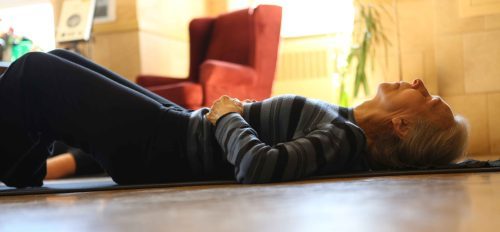
Photo credit : Karine Kalfon
For the full research paper and related research see:
- Esmail, A., Vrinceanu, T., Lussier, M., Predovan, D., Berryman, N., Houle, J., Karelis, A., Grenier, S., Vu, T.T.M., Villalpando, J-M. & Bherer, L. (2020) Effects of Dance/Movement Training vs. Aerobic Exercise Training on cognition, physical fitness and quality of life in older adults: a randomized controlled trial. Journal of Bodywork and Movement Therapies. [Epub ahead of print]. 24:212-220.
- Vrinceanu, T., Esmail, A., Predovan, D., Berryman, N., Vu, T.T.M, Villalpando, J-M., Prussener, J & Bherer, L. (2019) Dance your stress away: Comparing the effect of Dance/Movement Training to Aerobic Exercise Training on the cortisol awakening response in healthy older adults. Stress. 22:6, 687-695.
Artist Status Act: Recap of the Information Session
On Tuesday, May 30, 2023, an online information session was held regarding significant changes to the Act respecting the professional status of artists, known as Act S-32.1. Co-hosted by Pascale Bureau, socio-economic advisor for artists and cultural workers at the Ministère de la culture et des communications du Québec, and Sophie Préfontaine, experienced lawyer in the cultural sector, this session attracted the participation of 44 members.
The speakers presented the context surrounding the Act S-32.1, specifying that this Act applies to artists and producers providing professional services in various artistic fields.
Before the adoption of this Act, two distinct laws governed the minimum conditions for artists in Quebec since the 1980s. The new Act now encompasses all artists and aims to establish, harmonize, and modernize the rules concerning the professional status of artists and working conditions. It also defines the conditions for recognizing the status of professional artists and artist associations.
The Act brings important additions, such as a collective bargaining mechanism to improve the socio-economic conditions of artists represented by associations, the inclusion of digital arts in the definition of visual arts, as well as the obligation for a recognized artist association to fairly represent its members. Additionally, the Administrative Labor Tribunal, which previously had the mission of recognizing associations, now has new powers, notably to enforce collective agreements and take measures in cases of psychological harassment at work, a process for which artists will now be able to receive accompaniment, among other additions. Finally, the Act grants the Minister of Culture and Communications of Quebec regulatory power to establish minimum conditions for an artistic sector.
The session was enriched by the members’ questions, generating keen interest and raising important concerns to be addressed in information sessions that will be organized by the RQD to continue discussing the subject of working conditions for dance artists.
Resources against psychological harassment at work, available on the RQD website, were made available to participants who attended the session.
Presentation (FR)
Resources
Toolkit – Preventing Harassment and Other Violence
Sources
Echoes from the field | Janelle Hacault
As I geared up for Dancer Transition Resource Centre’s (DTRC) annual event “Industry Connect, ” for which I was a guest speaker this past weekend, I found myself reflecting on what I’ve learned throughout my dance career to ensure it is sustainable. Although I could write a book on what I have discovered throughout my career, one of the things to keep in mind when one is an emerging dancer is not what you might expect. And that is, rest. It seems counter-intuitive to tell emerging dancers to make time for rest, but I believe it is essential to their physical and mental well-being.
On a physical level, rest provides our body the precious time necessary to rebuild micro-tears we’ve made during training. After rest, we come back stronger than before and therefore have a strong corporeal foundation to meet the physical demands of our craft. Rest in the form of sleep is crucial for our brain’s capacity to retain information, process our experiences, and (in terms of dance) consolidate movement that at first may be complex, but after a night’s rest, will be easier to execute than before.
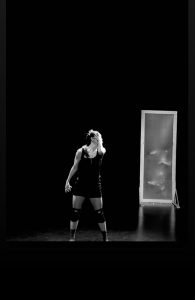
Dancers: Janelle Hacault with Sara Harton and Emmanuelle Martin, Photographer: Alexandre Carlos, Choreographer: Kyra Jean Green/Trip the Light Fantastic, Title: “No One’s Home”.
But sleep isn’t the only form of rest that we ought to take into consideration. In my experience, the times I took even for a few minutes during my lunch break to tap into my breath, had a positive ripple effect in my day. The practice of self-regulation, be it meditation, mindful breathing techniques, yoga, somatic movement, or even prayer, significantly serves our ability to be resilient. Resilience is one of the most important qualities a dance artist can have for their longevity in this rewarding yet challenging line of work. We need to call upon our resilience in times of disappointment, loss, rejection, and stress. Yes, the world of dance is a magical place where humanity is celebrated and explored. But the business world of dance is not for the faint of heart. So, what do we do when seasons of financial uncertainty are upon us, when we don’t receive the grant we had our hearts set on, when the company we auditioned for does not choose us for the project? We don’t quit, we rest. We take a moment to tap into our body’s intelligence and we breathe. We self-regulate. Coming back to the basics of breath, grounds us in the present moment. This makes way for better clarity. Instead of “trying to figure it all out” with our minds, we dial into “what is” here and now through our body. In this space, we will see the blessings in disguise, we will notice opportunity, we will have the grace to surrender and trust the process. Oh, I know this is WAY easier said than done. But, as author Glennon Doyle declares over and again, “we can do hard things’, and in this industry, we will be asked to do hard things.
Dance artists are generous. We are asked to be vulnerable, open, and give everything we’ve got. But we also need to be tough, resilient and discerning. This balance of softness and strength is what will sustain us in this career path. When we are constantly giving, opening and delivering, how do we refresh, refuel and give back to ourselves? We rest. We have daily rituals or habits that ground us.
Growing up, my family did not know the meaning of rest. Purpose and value were defined on how productive we were, how much we accomplished and what we earned. Thankfully, a new wave of being is emerging. As the world’s “machine” continues in vain, with the message of “produce, produce, produce”, it is important as artists to stop, rest, and reflect on what we are creating and why. It’s all too easy to use the same worldly value of “product over progress” and apply it to the world of dance, but we must resist this temptation. Taking time to not only rest, but give space to what we create will only enrich it. Forcing our muscles to grow or our art piece to emerge before they are ready will only create more problems. The key is to tap into the rhythm and life force of your own body and our craft. What does the work/our body/this choreography need right now? Maybe it is a push, time to percolate, or maybe it is a good night’s sleep.
Below is an exercise for the next time you feel overwhelmed, confused, stressed or emotionally triggered:
- Stop everything and find a safe quiet place to sit. Sometimes the bathroom works wonders for this.
- Close your eyes and take 3 deep slow breaths. Having your exhale longer than your inhale will help activate your parasympathetic nervous system to bring more calm.
- Ask, “what do I need right now?” And without doubting or overthinking, do that. If you can’t do the thing right there, make an agreement with yourself that you will do it at a specific time later that day.
Other forms of support include journaling 3 pages without thinking, calling on a trusted friend, talking with a counselor or professional mental health specialist (DTRC offers free counselling programs), sharing with a mentor or elder.

© Damian Siqueiros
JANELLE HACAULT
Janelle Hacault is a professional Filipino/French-Canadian contemporary dance artist, choreographer, teacher, actor and coach based in Montreal, QC. She is a graduate of the School of Contemporary Dancers Senior Professional Program in Winnipeg, an actress by training, and holds an Honours B.A. from the University of Winnipeg. She was co-founder of Nova Dance Collective, 6 Ricochet and co-creator of thedancepost.org. She has had the privilege of working with Nafro Dance Productions, Ming Hon, Compagnie Entitey/Jason Martin, Trip The Light Fantastic (Kyra Jean Green), Charles-Alexis Desgagnés, Morgane LeTiec, Andrea Peña, Sylvain Émard Danse, Les 7 Doigts de la Main, Wynn Holmes, Ani Taj, and Sam Pinkleton have all been nominated for Tony Awards. In 2021, she participated in the 3rd season of Revolution, created her new work at the Festival Quartiers Danses entitled Ce Moment Où… broadcast on MaTV and co-created an original musical with collaborator/musician Jeremy Walmsley entitled, Ships. In 2022, Janelle worked with Sylvain Émard Danse (SED) and 19 other dancers on the show Rhapsodie, presented by Danse Danse, performed Les Préludes (SED) in Trois-Rivières, and toured Annie : la comédie musicale (directed by Serge Denoncourt and choreographed by Wynn Holmes) in Montreal and Quebec City for Just for Laughs. In addition to performing, Janelle has a coaching practice and an online embodiment session that blends dance and meditation.
Every step, a victory: the RQD’s 2023-2024 membership campaign is on!
A fresh wave of passion and determination is about to sweep through the dance world as the Regroupement québécois de la danse (RQD) launches its long-awaited membership campaign. Starting June 8, professionals, organizations and all players in the professional dance ecosystem will have the opportunity to join this vibrant community and celebrate every step as a victory.
Under the inspiring motto “Every step a victory”, the RQD wishes to remind us of the importance of recognizing and valuing individual and collective achievements in the field of dance. Each step taken represents a further step towards personal fulfillment and professional advancement, but also a step forward in our demands and the battles we wage on a daily basis. The RQD’s membership campaign aims to bring together passionate professionals who share this vision, and to offer them a host of exclusive benefits.
Becoming a member of the RQD gives you access to a customizable member space, where you can present your profile, share bulletin board announcements and events, and benefit from exclusive discounts. In addition, membership entitles you to take part in classes and training courses offered by the RQD at advantageous rates. Thanks to the Training Support Program, eligible members will also have the opportunity to receive annual financial assistance to keep their fitness at its peak.
The RQD plays an essential role in the promotion and development of choreographic art in Quebec. By joining this dynamic community, members will have the opportunity to connect with their peers, establish strong professional ties and participate in exclusive events. What’s more, the RQD actively represents the interests of its members and contributes to the improvement of dance practice conditions.
“We are proud to launch this membership campaign, which celebrates the victories and advances of every professional in the sector,” says Nadine Medawar. “Dance is a demanding discipline that requires perseverance and continuous investment. At the RQD, we believe in the strength of community and are committed to supporting our members on their journey. Join us and be part of a community that recognizes and celebrates every step as a victory.”
The RQD membership campaign kicks off on June 8, 2023. Don’t miss this unique opportunity to join a community dedicated to the advancement of dance in Quebec.
Photo credit : Vanishing Bodies, Ballet Jazz Montreal © Sasha Onyshchenko


